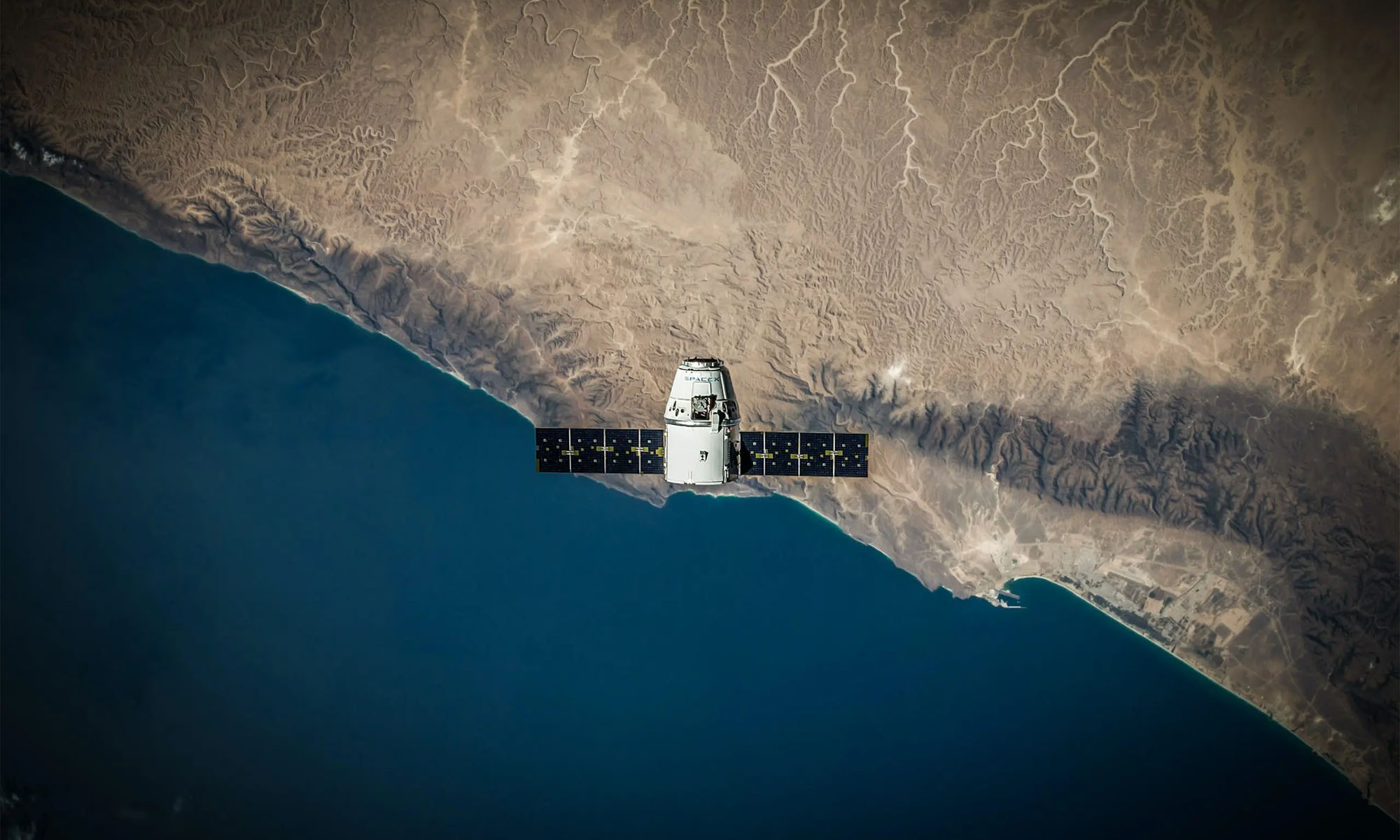News
Saudi Arabia Launches SpaceGuardian, An AI Satellite Imagery Project
Front End, a Saudi investment and development entity, will collaborate with SpaceKnow, a space-tech firm from New York.

As part of its efforts to build a modern, tech-focused economy, Saudi Arabia is delving into AI-powered satellite image analysis. The latest project involves a collaboration between Front End, a Saudi Arabian investment and development entity, and SpaceKnow, a space technology firm headquartered in New York. The collaboration has led to the establishment of SpaceGuardian, a project that will harness SpaceKnow’s exclusive AI-enabled analytical engine for contextualizing satellite imaging.

The agreement was formalized between Majid Alghaslan, Chairman and CEO of Front End, and Jerry Javornicky, CEO and co-founder of SpaceKnow, during the recent International Petroleum Technology Conference (IPTC) 2024, held in Dhahran.
The location of the meeting is significant, as satellite imaging has already proved invaluable for capturing multi-dimensional snapshots of the country’s Ghawar oil field, helping to forecast the future viability of the lucrative natural resources in the area.
Pioneering the field of satellite AI imagery, SpaceGuardian will offer real-time geospatial analysis of the country utilizing machine learning. Javornicky envisions that the project will “revolutionize the AI-driven geospatial market [via SpaceGuardian] commencing with carbon sequestration, security, and infrastructure surveillance”.
AI-driven satellite imagery spans a diverse range of applications, offering insights into the effectiveness of environmental initiatives and guiding economic policies based on space-derived data. Majid describes this partnership as “embracing innovation and progress that will propel Saudi Arabia into a new era of digital transformation”.
Also Read: UAE’s Yahsat Introduces Smartphone-To-Satellite Connectivity
In a departure from its traditional reliance on oil revenues, the Saudi Arabian government has been ramping up efforts to steer the economy towards a digital future. Both Artificial intelligence and space technology seem to be of keen interest to the Kingdom, alongside major urban planning projects and sustainable infrastructure upgrades.
Front End’s Majid Alghaslan underscores that “[SpaceGuardian] contributes to the development of the burgeoning space sector and supports the establishment of a robust space agency in Saudi Arabia. With a comprehensive suite of services catering to all industries and sectors”.
In total, Saudi Arabia’s move into the AI space sector is expected to usher in over $5.3 billion in investments by 2030.
News
Samsung Smart Glasses Teased For January, Software Reveal Imminent
According to Korean sources, the new wearable will launch alongside the Galaxy S25, with the accompanying software platform unveiled this December.

Samsung appears poised to introduce its highly anticipated smart glasses in January 2025, alongside the launch of the Galaxy S25. According to sources in Korea, the company will first reveal the accompanying software platform later this month.
As per a report from Yonhap News, Samsung’s unveiling strategy for the smart glasses echoes its approach with the Galaxy Ring earlier this year. The January showcase won’t constitute a full product launch but will likely feature teaser visuals at the Galaxy S25 event. A more detailed rollout could follow in subsequent months.
Just in: Samsung is set to unveil a prototype of its augmented reality (AR) glasses, currently in development, during the Galaxy S25 Unpacked event early next year, likely in the form of videos or images.
Additionally, prior to revealing the prototype, Samsung plans to introduce…
— Jukanlosreve (@Jukanlosreve) December 3, 2024
The Galaxy Ring, for example, debuted in January via a short presentation during Samsung’s Unpacked event. The full product unveiling came later at MWC in February, and the final release followed in July. Samsung seems to be adopting a similar phased approach with its smart glasses, which are expected to hit the market in the third quarter of 2025.
A Collaborative Software Effort
Samsung’s partnership with Google has played a key role in developing the smart glasses’ software. This collaboration was first announced in February 2023, with the device set to run on an Android-based platform. In July, the companies reiterated their plans to deliver an extended reality (XR) platform by the end of the year. The software specifics for the XR device are expected to be unveiled before the end of December.
Reports suggest that the smart glasses will resemble Ray-Ban Meta smart glasses in functionality. They won’t include a display but will weigh approximately 50 grams, emphasizing a lightweight, user-friendly design.
Feature Set And Compatibility
The glasses are rumored to integrate Google’s Gemini technology, alongside features like gesture recognition and potential payment capabilities. Samsung aims to create a seamless user experience by integrating the glasses with its broader Galaxy ecosystem, starting with the Galaxy S25, slated for release on January 22.






















